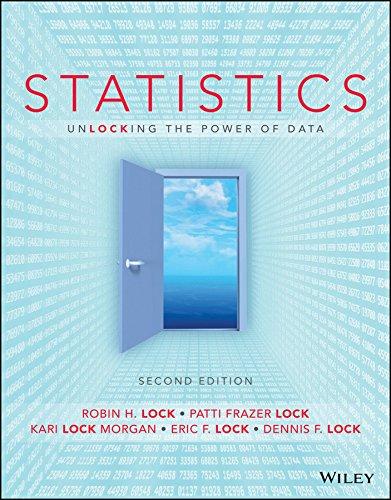Testing (H_{0}: p_{1}=p_{2}) vs (H_{a}: p_{1}>p_{2}) using (hat{p}_{1}-hat{p}_{2}=0.8-0.7=0.10) with each of the following sample sizes: (a) (hat{p}_{1}=24
Question:
Testing \(H_{0}: p_{1}=p_{2}\) vs \(H_{a}: p_{1}>p_{2}\) using \(\hat{p}_{1}-\hat{p}_{2}=0.8-0.7=0.10\) with each of the following sample sizes:
(a) \(\hat{p}_{1}=24 / 30=0.8\) and \(\hat{p}_{2}=14 / 20=0.7\)
(b) \(\hat{p}_{1}=240 / 300=0.8\) and \(\hat{p}_{2}=140 / 200=0.7\)
The same sample statistic is used to test a hypothesis, using different sample sizes. In each case, use StatKey or other technology to find the p-value and indicate whether the results are significant at a 5\% level. Which sample size provides the strongest evidence for the alternative hypothesis?
Fantastic news! We've Found the answer you've been seeking!
Step by Step Answer:
Related Book For 

Statistics, Enhanced Unlocking The Power Of Data
ISBN: 9781119308843
2nd Edition
Authors: Robin H Lock, Patti Frazer Lock, Kari Lock Morgan, Eric F Lock, Dennis F Lock
Question Posted:





